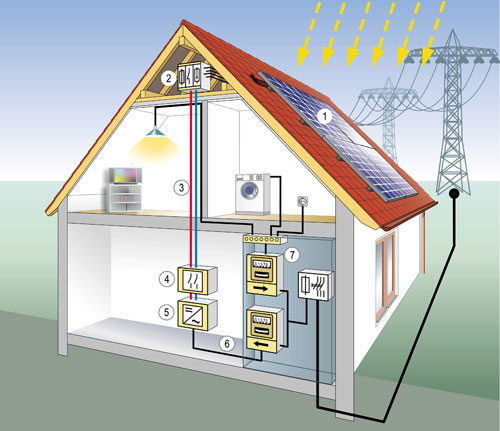Global Issues
Environmental quotes
Time (GR)
Παζλ - Puzzle
| Go-Green: |
Photovoltaic energy
Photovoltaic (fo-to-vol-ta-ik) systems are solar systems that produce electricity directly from sunlight. The term "photo" comes from the Greek "phos," meaning light. "Voltaic" is named for Alessandro Volta (1745-1827), a pioneer in the study of electricity for whom the term "volt" was named. Photovoltaics, then, means "light electricity." Photovoltaic systems produce clean, reliable electricity without consuming any fossil fuels. They are being used in a wide variety of applications, from providing power for watches, highway signs, and space stations, to providing for a household's electrical needs.
Photovoltaic energy is the conversion of sunlight into electricity through a photovoltaic (PVs) cell, commonly called a solar cell. A photovoltaic cell is a nonmechanical device usually made from silicon alloys.
Sunlight is composed of photons, or particles of solar energy. These photons contain various amounts of energy corresponding to the different wavelengths of the solar spectrum. When photons strike a photovoltaic cell, they may be reflected, pass right through, or be absorbed. Only the absorbed photons provide energy to generate electricity. When enough sunlight (energy) is absorbed by the material (a semiconductor), electrons are dislodged from the material's atoms. Special treatment of the material surface during manufacturing makes the front surface of the cell more receptive to free electrons, so the electrons naturally migrate to the surface.
The environmental impact of a photovoltaic system is minimal, requiring no water for system cooling and generating no by-products.

Source : http://www.kids.esdb.bg/solar.html











